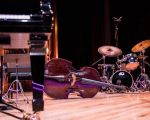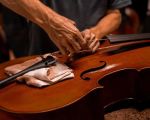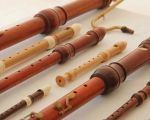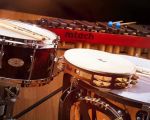Best Pianos for Intermediate Musicians: Top Choices to Enhance Your Skills
As an intermediate musician, you’re likely looking for a piano that offers the right balance of performance, sound quality, and features to take your skills to the next level. Whether you’re transitioning from a beginner’s model or simply upgrading, choosing the right piano is crucial for continued growth and satisfaction in your musical journey. In this article, we’ll explore the best pianos for intermediate musicians, focusing on both digital and acoustic options, and providing you with the information you need to make an informed decision.
Having spent years exploring various pianos and learning about different models, I understand the importance of finding the perfect instrument to suit your playing style and goals. Let’s dive into the top choices that offer exceptional value, versatility, and sound quality for intermediate players.
1. What Makes a Piano Ideal for Intermediate Musicians?
When searching for the best pianos for intermediate musicians, it’s important to understand what features to look for. At this stage, you may be ready for an upgrade from entry-level pianos, seeking something that offers more responsive keys, richer sound, and advanced features to complement your skills. Here are a few key factors to keep in mind:
1.1. Key Action and Touch Sensitivity
As an intermediate player, you’ll need a piano that provides a more nuanced touch and a key action that responds to the way you play. For acoustic pianos, this means a more refined hammer action and responsive keys that allow you to express your dynamics effectively. For digital pianos, look for weighted keys that mimic the feel of an acoustic piano. The closer the action is to an acoustic piano, the better your playing experience will be.
From my experience, a well-balanced key action can make all the difference in how expressive you sound when playing. The Yamaha CLP-735, for example, offers a graded hammer action that provides a realistic feel similar to an acoustic piano, making it an excellent choice for intermediate players looking to elevate their performance.
1.2. Sound Quality
Sound is one of the most important factors when choosing a piano, especially for intermediate musicians. You want a piano that produces a clear, rich tone with good resonance. Acoustic pianos naturally excel in this department, but many digital pianos are now equipped with advanced sound sampling technology to offer a similarly high-quality sound experience.
For example, the Roland FP-90X digital piano uses SuperNATURAL technology to produce a rich, realistic sound that rivals acoustic pianos. If you’re looking for versatility and excellent sound quality, digital pianos like this one are great options.
1.3. Advanced Features
Intermediate musicians often benefit from pianos with additional features like multiple voices, recording capabilities, and connectivity options. Digital pianos tend to offer more of these features, including options to play different instrument sounds (such as strings, electric piano, or organ) and even the ability to connect to learning apps or external devices.
The Kawai ES920, for example, offers Bluetooth connectivity, which allows you to pair it with your tablet or phone for interactive lessons. For intermediate musicians who want to experiment with different sounds and tools, these advanced features can be incredibly beneficial.
2. Top Digital Pianos for Intermediate Musicians
Digital pianos are a great choice for intermediate musicians who want versatility, portability, and advanced features. Here are some of the best digital pianos on the market for intermediate players:
2.1. Yamaha Clavinova CLP-735
The Yamaha Clavinova CLP-735 is an excellent choice for intermediate musicians who want the feel and sound of an acoustic piano with the added benefits of digital technology. It features Yamaha’s GH3X action, which mimics the feel of an acoustic piano with a responsive, graded hammer action. Additionally, it offers a variety of voices, including different grand pianos and electric pianos, allowing you to experiment with different sounds.
In terms of sound, the CLP-735 uses Yamaha’s Virtual Resonance Modeling (VRM) technology, providing an incredibly realistic piano tone with full, rich resonance. If you're looking for a versatile, high-quality digital piano, this model offers the perfect balance of realism and functionality.
2.2. Roland FP-90X
The Roland FP-90X is another fantastic digital piano for intermediate musicians. Known for its superior sound quality, the FP-90X uses Roland’s SuperNATURAL sound engine to produce realistic tones. The piano’s PHA-50 key action offers a hybrid design that combines wood and molded materials, providing a feel that closely resembles an acoustic piano.
One of the standout features of the FP-90X is its stunning built-in speakers, which produce a rich and immersive sound, perfect for playing in a variety of settings. Additionally, it includes Bluetooth connectivity, allowing you to use apps and connect to other devices for a more interactive learning experience.
2.3. Kawai ES920
The Kawai ES920 is a portable digital piano that doesn’t compromise on sound quality or key action. It features Kawai’s Responsive Hammer III action, which provides a realistic feel with excellent responsiveness. The ES920 also uses Harmonic Imaging XL technology, producing rich, detailed tones that mimic the sound of an acoustic piano.
For intermediate musicians, the Kawai ES920 offers a range of useful features, including Bluetooth connectivity, multiple instrument sounds, and an advanced recording system. If you’re looking for a digital piano that’s versatile and easy to transport, the ES920 is a great choice.
3. Best Acoustic Pianos for Intermediate Musicians
While digital pianos offer convenience and advanced features, many intermediate musicians still prefer the authenticity of an acoustic piano. Here are some of the best acoustic pianos for players who want a traditional experience with exceptional sound:
3.1. Yamaha U1
The Yamaha U1 is one of the most popular upright pianos for intermediate musicians. Known for its durability and rich sound, the U1 has been a staple in both homes and institutions for decades. The responsive key action and well-rounded tone make it ideal for players who want to refine their skills and enjoy the nuances of acoustic playing.
One of the things I love about the Yamaha U1 is its consistency. The piano maintains its tuning and sound quality over time, making it a reliable choice for musicians who practice regularly. If you're looking for a high-quality, durable acoustic piano, the Yamaha U1 is an excellent investment.
3.2. Kawai K-300
The Kawai K-300 is another fantastic upright piano for intermediate players. Known for its rich, full sound and smooth key action, the K-300 provides a rewarding playing experience. It features Kawai’s Millenium III action, which ensures precision and control over every note you play.
The Kawai K-300 also boasts excellent sound projection, making it suitable for both small practice spaces and larger rooms. The piano’s elegant design and exceptional craftsmanship make it a popular choice among intermediate musicians who value both aesthetics and performance.
4. Conclusion: Choosing the Right Piano for Your Growth as an Intermediate Musician
When choosing the best piano for intermediate musicians, it's important to find one that suits your playing style, offers the right features, and provides a high-quality sound experience. Whether you prefer the versatility of a digital piano like the Yamaha CLP-735 or the authenticity of an acoustic piano like the Yamaha U1, there are many great options to explore. Keep in mind the key factors of touch, sound quality, and advanced features, and choose the piano that aligns with your goals as a musician.
If you're looking to purchase a piano or need help selecting the best model for your needs, check out Beat Trigger for expert recommendations and a curated selection of the best pianos on the market.








